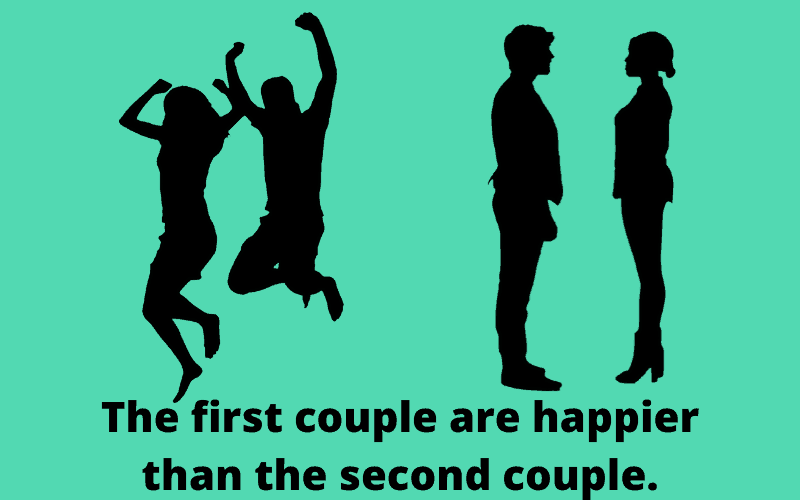Excepciones a la regla
Hay adjetivos regulares como:
Young (younger)
Old (older)
Fast (faster)
Y también hay adjetivos irregulares, como:
Good / Well – better
Bad / Badly – worse
Far – further
En estos casos no añadimos la terminación «-er», ni tampoco usamos la palabra «more». Lee estos ejemplos:
She is better at swimming than me.
The movie is better than the book
My house is further than your house.
I feel worse than yesterday.
En algunos casos podemos usar la terminación «-er» o la palabra «more» con adjetivos de dos sílabas, especialmente con los siguientes: clever, narrow, quiet, simple, shallow.
She’s cleverer.
She’s more clever.
En este caso, ambas opciones son correctas.
Modificadores:
Podemos añadir palabras como: much, a lot, far (=a lot), a little, a bit, para modificar la cantidad o el nivel.
I feel much better today.
Are you a bit better today?
This book is a bit more expensive than the other.
Now that she changed her job she’s a lot happier.
Otros usos para los adjetivos comparativos en inglés:
«Better and better»
Repetimos los dos comparativos para expresar que algo cambia constantemente para mejor.
If you study English every day you’ll get better and better.
Renting is getting more and more expensive these days.
The… The…
Puedes usar el artículo definitivo «the» antes de un adjetivo para decir que una cosa depende de otra.
The sooner we leave the better.
The further you go out of the city the cheaper it gets.
The longer we wait the later we’ll be.
The… The…
Puedes añadir expresiones con dos adjetivos comparativos, como:
The sooner the better. (= as soon as possible the better)
The younger, the better. ( = as young as possible the better)
Older or elder?
Older es el comparativo de old, lo usamos sólo cuando comparamos.
My best friend is older than me.
Elder se usa cuando hablas sobre personas en tu familia. Además, también puedes usar older.
My elder sister works in the pharmacy.
Do you have an elder brother?
Attention: we do not say “My sister is elder than me»
Lo contrario de los comparativos: less
Usamos less como opuesto a more (más). Los adjetivos cambiarán de la misma manera que antes, añadiendo -er o la palabra less en lugar de more.
Ejemplos:
You are working less harder than I am.
The movie is less interesting.
You’re less busy than I am.
Remember to add the word less in all the sentences you make.
Más ejemplos de adjetivos comparativos
Your shoes are more expensive than mine.
Today is a bit sunnier than yesterday.
Are you feeling better?
This new restaurant is cheaper than the Japanese one.
¿Cuál es el adjetivo comparativo de lazy?
Lazy termina en Y, y si recuerdas las reglas de arriba, sabrás entonces que el comparativo de lazy es lazier.:





